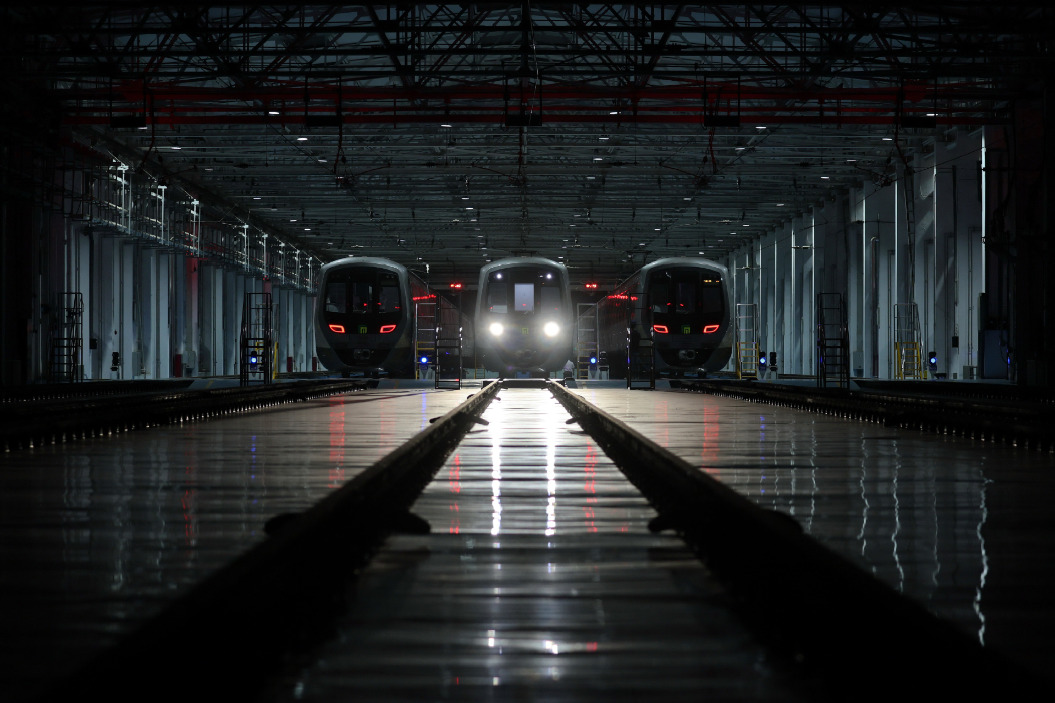How does Xi unleash the power of the market?

BEIJING -- Chinese leader Xi Jinping has sounded the clarion call for reform during the country's annual key political season, dispelling concerns about whether China's reform is "stagnating," or its economy is "losing steam."
"We must plan major moves to deepen reform to inject strong impetus into promoting high-quality development and advancing Chinese modernization," President Xi said at the annual sessions of China's top legislature and top political advisory body, or the "two sessions," which wrapped up on Monday.
China is currently at a critical juncture, where Xi is leading the country to realize the ambitious "Chinese modernization," while being confronted with major challenges, such as downward economic pressure following the COVID-19 pandemic, rising protectionism and suppression from Western nations, and risks associated with the real estate sector, local government debts, and some small and medium-sized financial institutions.
The development of the socialist market economy is crucial to Xi's vision for China's future. How does Xi advance reform to unleash the power of the market?
When Xi assumed the position of the general secretary of the Communist Party of China Central Committee in 2012, two decades had passed since the concept of building a socialist market economy was introduced.
However, doing business remained a challenging endeavor. In 2014, a lawmaker attending local "two sessions" revealed that a single investment project, from acquiring land to completing all administrative approval procedures, required more than 30 government approvals and over a hundred stamps. The entire process took a minimum of 272 working days.
Xi strongly opposes cumbersome government approvals. While working in Fuzhou of Fujian Province, he pioneered a mechanism that enabled all procedures for investment project approval to be completed in a single building.
As the country's top leader, he advocated that "the market plays the decisive role in resource allocation and the government plays its role better."
Over the years, the State Council has canceled or delegated to lower-level authorities the power of administrative approval for over 1,000 items and slashed the number of investment items subject to central government approval by over 90 percent.
"Let the vitality that creates wealth burst forth, and let the power of the market be fully unleashed," said Xi.
The results of the reforms are remarkable, as China was ranked by the World Bank as one of the top 10 economies with the most notable improvement in the business environment for two years in a row.
In January 2019, construction started for Tesla's Shanghai Gigafactory, and the automaker started delivering the first batch of China-made Model 3 electric cars built at the factory in December 2019, a pace of development praised by Tesla CEO Elon Musk.
Xi is well-acquainted with the challenging situation faced by private enterprises. He instructed the establishment of a private economy development bureau under the country's top economic planner to provide assistance to private enterprises facing difficulties.
Xi also emphasized the need to promote financial reforms to facilitate financing for private enterprises. He stressed the importance of encouraging private capital to enter industries and sectors where entry is not explicitly prohibited by laws and regulations.
Under Xi's instruction, the system of a negative list for market access was comprehensively implemented, allowing entry into areas not explicitly prohibited by the list. By the end of 2023, the number of registered business entities nationwide reached 184 million, more than three times the figure in 2012.
From 2012 to 2023, the number of private enterprises in China more than quadrupled, and the proportion of private enterprises in the total number of enterprises increased from less than 80 percent to over 92 percent.
While reinforcing the Party's leadership, Xi initiated market-oriented reforms for state-owned enterprises (SOEs). In 2017, China Unicom, as the first centrally-administered SOE in the telecommunications industry to open up to private capital, introduced 14 strategic investors, including internet titans Tencent, Baidu, JD.com, and Alibaba, in the "mixed-ownership reform."
A three-year action plan for SOE reform converted SOEs into limited liability companies or companies limited by shares. Some 38,000 SOEs established boards of directors.
International media have noticed that China's reform has been advancing in step with changes in the situation. A trade war waged by the United States, the global pandemic, and increased geopolitical tensions have tested the resilience of China's economy. The country is also transforming its economic development model.
Xi has led China to accelerate building the new development pattern, which takes the domestic market as the mainstay while allowing domestic and international markets to reinforce each other.
Xi has made "institutional opening-up" a priority. In one such move, China has lifted foreign ownership limits for securities companies, management companies of securities investment funds, futures companies, and life insurance companies.
Meanwhile, he is cautious about disorderly capital expansion, market manipulation, and pursuit of exorbitant profits in certain areas. He said it harms the interests of the people.
He proposed setting "traffic lights" for capital flows, ensuring that "financial magnates" do not act unscrupulously while still allowing capital to function properly as a production factor.
- China-Cameroon optometry training exchange held in Shenyang
- 20,000 cases investigated in crackdown on fraud in meat, edible oil sectors
- Liao Dynasty temple prepares to open for National Day
- China's State Council appoints, removes officials
- Chinese scientists uncover climate warming impact on plateau flowering
- Village in Jilin harvests bumper crop of autumn apples





































